How Much Does It Cost to Hire Movers Across Canada in 2025?
Moving across Canada costs between $250 and $16,000 in 2025, depending on your home size and distance. Local moves typically cost $250-$4,000, while long-distance moves range from $2,000-$5,000 for distances over 100 kilometers. According to Statistics Canada, 2.1 million Canadian households moved in the two years leading up to 2021, with renters being more likely to move than homeowners.
How Much Does It Cost to Hire Movers Across Canada in 2025?
Moving across Canada costs between $250 and $16,000 in 2025, depending on your home size and distance. Local moves typically cost $250-$4,000, while long-distance moves range from $2,000-$5,000 for distances over 100 kilometers. According to Statistics Canada, 2.1 million Canadian households moved in the two years leading up to 2021, with renters being more likely to move than homeowners. This complete guide breaks down all costs, factors that affect pricing, and smart ways to save money on your move.
Current Moving Costs In Canada By Home Size
Local Moving Costs (Under 100 km)
Local moves are priced by the hour and include a moving truck with all equipment. Here's what you can expect to pay:
Studio/1-Bedroom Apartment: $600-$800
- 2 movers for 4-6 hours
- Includes 26-foot moving truck
- Basic moving supplies included
2-Bedroom Home: $900-$1,200
- 2-3 movers for 6-8 hours
- Standard moving truck
- Furniture padding and equipment
3-Bedroom Home: $1,100-$1,500
- 3 movers for 8-10 hours
- 26-28 foot truck
- Complete moving service
4+ Bedroom Home: $1,800-$2,500
- 4 movers for 10-12 hours
- Large moving truck
- Full-service moving team
Long-Distance Moving Costs (Over 100 km)
Long-distance moves are calculated based on distance plus shipment weight plus extra services. Sample costs include:
Popular Routes:
- Vancouver to Toronto: $2,045
- Edmonton to Toronto: $6,455
- Montreal to Vancouver: $6,044
- Toronto to Ottawa: $2,011
- Vancouver to Edmonton: $2,650
These prices are for 2-bedroom homes moved mid-week and include 13% tax but don't include packing services.
Regional Price Differences Across Canada
Western Canada (Alberta, BC, Saskatchewan)
Edmonton Moving Costs:
- Local moves: $500-$750 for 1-bedroom, $1,200-$2,500 for long-distance
- Hourly rates: $130-$150 for two-mover team with truck
Vancouver Moving Costs:
- Higher than national average due to demand
- Peak season increases up to 30%
- Limited parking adds extra fees
Central Canada (Ontario, Quebec, Manitoba)
Toronto Moving Costs:
- 1-bedroom: $600-$1,000, 2-bedroom: $1,100-$1,400, 3-bedroom: $1,500-$1,750
- Hourly rates: $120-$200 per hour
Ottawa Moving Costs:
- $200-$250 per hour for 3 movers and truck
- Minimum 4-hour charge, so minimum cost is $1,000 plus tax
Eastern Canada (Atlantic Provinces)
Eastern Canada typically offers the most affordable moving rates:
- 10-20% below national average
- Less peak season variation
- More availability year-round
What's Included In Moving Costs
Standard Moving Services
Most moving companies include these basics:
- Moving truck and fuel
- Furniture padding and protection equipment
- Basic moving supplies (straps, dollies)
- Loading and unloading services
- Basic liability coverage
Additional Services That Cost Extra
Packing Services:
- 1-bedroom: $200-$400, 2-bedroom: $400-$600, 3-bedroom: $600-$1,000
- Professional packing for 1-bedroom apartment: $600-$900
- Full house packing service: $1,500-$1,900
Specialty Items:
- Piano moving: $200-$1,048 (up to $3,200 if crane needed)
- Pool tables: $300-$600
- Hot tubs: $500-$1,200
- Artwork and antiques: Custom pricing
Storage Services:
- Temporary storage: $100-$300 per month
- Climate-controlled storage costs more
- First month often discounted
Peak Season Vs Off-Season Pricing
Peak Moving Season (May-August)
Summer is the busiest and most expensive time to move, with theCanadian moving services industry valued at $1.4 billion in 2025:
- Hourly rates increase by 20-30% during peak season
- Peak moving months go from June to August with limited availability
- Weekend moves cost $10 more per mover per hour
- End-of-month moves add $100 to total cost
Off-Season Benefits (September-April)
Moving during off-season saves significant money:
- Rates drop significantly come September
- Cheapest time to move is between October and April
- More availability for preferred dates
- Better service with less rushed schedules
Factors That Affect Your Moving Cost
Distance And Location
Local Moves:
- Most local moves under 100 kilometers cost $130-$200 per hour for two movers
- Travel time to your home (usually 1 hour charge)
- Fuel surcharge (around $40 locally)
Long-Distance Moves:
- Weight of belongings (major factor)
- Exact distance between cities
- Accessibility of both locations
Home Size And Belongings
What Increases Costs:
- More rooms mean more items
- Heavy furniture and appliances
- Lots of boxes and personal items
- Specialty items requiring extra care
What Decreases Costs:
- Minimal furniture
- Pre-packed belongings
- Easy access (no stairs)
- Decluttered home
Timing Factors
Most Expensive Times:
- Summer months (June-August)
- Weekends and holidays
- Beginning and end of month
- Last-minute bookings
Cheapest Times:
- Tuesday is the cheapest day to move
- Mid-month dates
- Fall and winter months
- Weekday moves
Hidden Costs To Watch For
Common Extra Charges
Access Fees:
- Long carry fees (if truck can't park close)
- Stair carry fees for multiple flights
- Elevator fees in high-rise buildings
- Shuttle service if large truck can't access property
Time-Related Fees:
- Overtime charges after 9 hours
- Waiting time if you're not ready
- Travel time between locations
- Fuel surcharges
How To Avoid Hidden Costs
Get Everything In Writing:
- Detailed written estimate
- List of all potential extra charges
- Clear hourly rates and minimums
- Cancellation policy details
Be Prepared On Moving Day:
- Have everything packed and ready
- Clear pathways for movers
- Secure parking for moving truck
- Be present for the entire move
Money-Saving Tips For Your Move
DIY Options To Cut Costs
Do Your Own Packing:
- DIY packing is the fastest way to reduce moving costs
- Save $400-$1,000 on packing services
- Get free boxes from local stores
- Pack non-fragile items yourself
Declutter Before Moving:
- Decluttering speeds up the moving process and saves money
- Sell items you don't need
- Donate furniture and clothing
- Recycle old electronics
Booking Strategies
Plan Ahead:
- Book your mover 30-60 days in advance
- Get multiple quotes (at least 3)
- Compare services, not just prices
- Read reviews and check references
Choose The Right Time:
- Move during off-season for significant savings
- Pick mid-week dates
- Avoid end-of-month moves
- Be flexible with your dates
Negotiation Tips
Ask About Discounts:
- Ask for price matching if you found a cheaper quote elsewhere
- Student discounts
- Senior discounts
- Military discounts
- Off-season promotions
Bundle Services:
- Package deals for packing and moving
- Storage discounts with moving service
- Multiple location moves
- Referral bonuses
Choosing The Right Moving Company
What To Look For
Licensing And Insurance:
- Proper provincial licensing
- Liability insurance coverage
- Workers' compensation
- Better Business Bureau rating
Services Offered:
- Local moving services for nearby relocations
- Long-distance moving across provinces
- Packing services for busy families
- Storage solutions when needed
Red Flags To Avoid
Warning Signs:
- Estimates significantly lower than others
- Demands large upfront payment
- No written estimate provided
- Poor online reviews
- No physical business address
Questions To Ask:
- What's included in the hourly rate?
- Are there minimum hour requirements?
- What extra fees might apply?
- What happens if items are damaged?
- Do you offer guaranteed pricing?
Moving Insurance And Protection
Basic Coverage
Most moving companies offer basic release value protection and full value protection. Basic coverage pays about 60 cents per pound for damaged items.
Enhanced Protection
Full Value Protection:
- Covers replacement cost of damaged items
- Higher premium but better coverage
- Recommended for valuable belongings
Third-Party Insurance:
- Consider third-party insurance for expensive, unique items
- Check if your homeowner's insurance covers moving through Insurance Bureau of Canada guidelines
- Document valuable items before moving
Regional Moving Considerations
Moving Within Alberta
For those in the Edmonton area, Last Stop Moving offers reliablelocal moving services throughout the region. We serve communities likeSherwood Park,St. Albert, andFort Saskatchewan.
Interprovincial Moves
Moving between provinces requires careful planning and the right moving company. Consider:
- Different provincial regulations
- Longer timelines
- Weather considerations
- Storage needs between move dates
Special Situations And Pricing
Senior Moving
Senior moving services often require extra care and patience. Many companies offer:
- Specialized packing for valuables
- Gentle handling of fragile items
- Help with downsizing decisions
- Flexible scheduling
Student Moves
Student moves have unique timing and budget needs. Look for:
- Affordable rates for small moves
- Flexible scheduling around school terms
- Storage options between semesters
- Quick turnaround times
Emergency Moves
Emergency moving services cost more but provide:
- Same-day availability
- Extended hour service
- Rush packing assistance
- Temporary storage solutions
Tax Benefits For Moving
Canadian Tax Deductions
You can claim moving expenses on your Canadian tax return if you meet certain criteria. According to the Canada Revenue Agency, deductible expenses include:
- Professional moving services
- Packing and truck rental
- Storage costs (up to 15 days)
- Travel expenses during the move
Eligibility Requirements
The move must be within 40 kilometers of your workplace or educational institute. Keep all receipts for:
- Moving company invoices
- Packing supplies
- Storage fees
- Travel and accommodation
Planning Your Moving Budget
Budget Breakdown
Typical Cost Distribution:
- Moving service: 60-70%
- Packing supplies: 10-15%
- Storage (if needed): 10-15%
- Insurance and extras: 5-10%
- Tips for movers: 5-10%
Creating A Moving Fund
Start Saving Early:
- Set aside money 3-6 months before moving
- Get quotes to establish realistic budget
- Add 10-20% buffer for unexpected costs
- Consider financing options if needed
Final Thoughts
Moving across Canada in 2025 requires careful planning and budgeting. The Canadian moving services industry is valued at $1.4 billion, with costs varying significantly based on distance, timing, and services needed. Research from the Better Business Bureau shows that planning ahead and choosing reputable companies helps avoid common moving scams and overcharges.
The key to a successful move is getting multiple quotes, planning ahead, and choosing the right moving company for your needs. Whether you're moving locally or across the country, investing in professional movers can save you time, stress, and potential injury.
Remember to book early, especially during peak season, and don't hesitate to ask about discounts or package deals. With proper planning and the right moving team, your Canadian move can be smooth and affordable.
Ready to start planning your move? Contact a licensed moving company in your area for a free estimate and take the first step toward your new home. Check out ourmoving checklist to ensure you don't miss any important details for your upcoming move.



